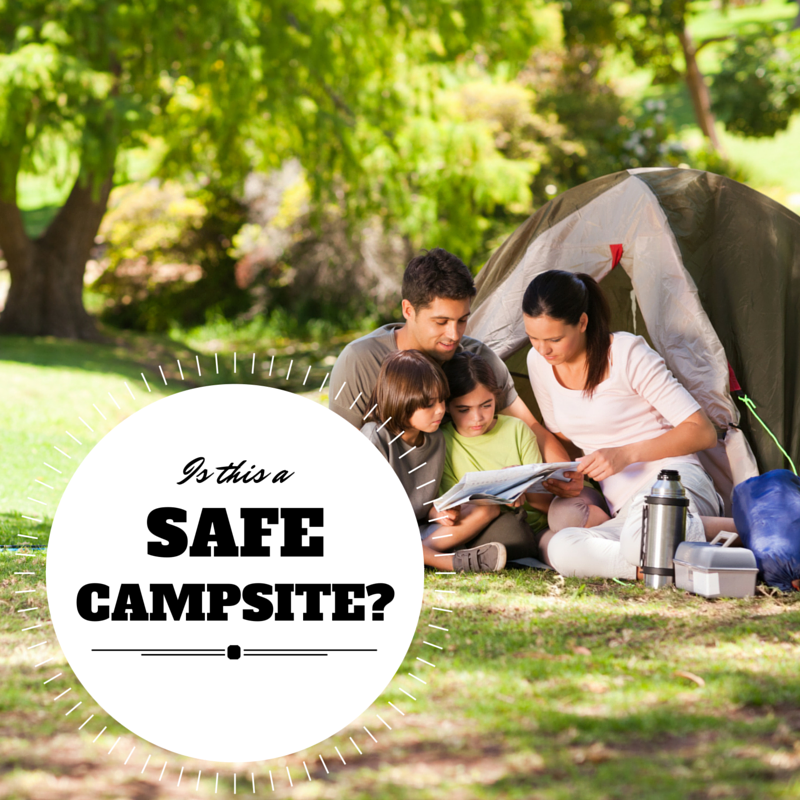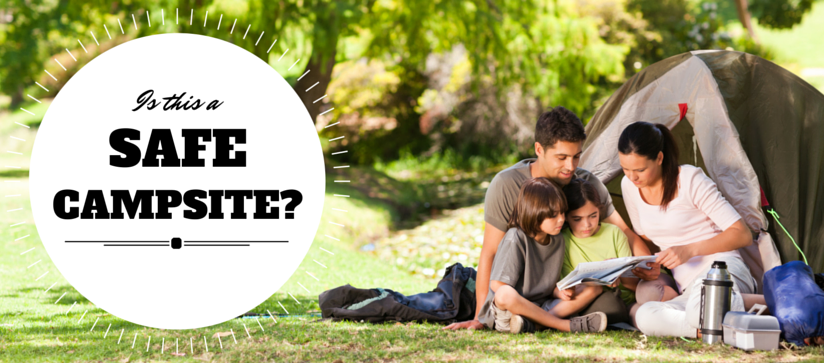

Whether you're roughing it in a tent or planning a family outing to a national forest, there are many ways to make sure your camping experience is both fun and safe. Consider the following camping safety tips provided by the US Forest Service before heading out on your next outdoor excursion:
 Pack a first aid kit.
Pack a first aid kit.
A first aid kit can prove invaluable if you or a member of your group suffers a cut, bee sting or allergic reaction. Pack antiseptics for cuts and scrapes, tweezers, bug spray, a snake bite kit, pain relievers, and sunscreen.
Bring emergency supplies.
In addition to a first aid kit, must-have emergency supplies include a map, compass, flashlight, knife, waterproof fire starter, whistle, warm blanket/clothing, high-energy food, water, and insect protection.
 Check what the forecast has in store.
Check what the forecast has in store.
Before leaving for your trip, take a look at the weather forecast and see if conditions look to be stable enough for a safe stay. When you arrive at your camp site, watch the skies for changes and carry a compact weather radio. In inclement weather, find shelter until the worst passes. Try to stay dry because wet clothes contribute to heat loss. Also, keep sleeping bags and important gear dry at all times.
Arrive early.
Plan your trip so that you arrive at your actual campsite with enough daylight to check over the entire site and to set up camp. Be sure to inspect the site thoroughly for potential dangers like glass, sharp objects, branches, large ant beds, poison ivy, bees, and hazardous terrain. Then, look to see that your site is level, and large enough to spread out all your gear. Notice any trees or shrubs which may help block strong, unexpected gusts.
 Build fires in a safe area.
Build fires in a safe area.
Your open fires and fuel-burning appliances must be far enough away from the tent to prevent ignition from sparks, flames, and heat. Never use a flame or any other heating device inside a tent. Use a flashlight or battery-powered light instead.
Never leave fires unattended.
Be sure you have an area for a fire that cannot spread laterally or vertically - a grill or stone surface is ideal. When putting the fire out, drown it with water, making sure all embers, coals and sticks are wet. Embers buried deep within the pile have a tendency to reignite later.
 Pitch your tent in a safe spot.
Pitch your tent in a safe spot.
Make sure your tent is made of a flame-retardant fabric, and set up far enough away from the campfire. Keep insects out of your tent by closing the entrance quickly when entering or leaving.
Dispose of trash properly.
Leaving litter is no way to abandon a campsite. Pick up after yourself and remember to recycle, if proper recycling bins are available.
 Take caution when it comes to wild animals.
Take caution when it comes to wild animals.
To ward off wild animals, keep your campsite clean, and do not leave food, garbage, coolers, cooking equipment or utensils out in the open. Remember that wild animals can be dangerous and unpredictable - never feed or approach them. Use a flashlight at night - many animals feed after dark and the use of a flashlight may keep them away.
Watch out for bugs.
Hornets, bees, wasps, and yellow jackets are a problem at many campsites. Avoid attracting stinging insects by wearing light-colored clothing and no heavy perfumes or colognes. Should such an insect approach, do not wave wildly and swat blindly. Instead, use a gentle pushing or brushing motion to deter them.
 Beware of poisonous plants.
Beware of poisonous plants.
Familiarize yourself with any dangerous plants that are common to the area. If you come into contact with a poisonous plant, immediately rinse the affected area with water and apply a soothing lotion, such as calamine, to the affected area.


Your Comments :